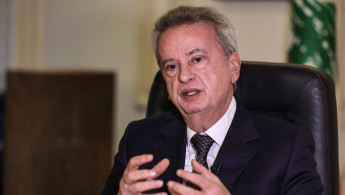Lebanon seizes central bank chief Riad Salameh's properties amid probes into numerous financial crimes
A Lebanon judge on Monday ordered the seizure of embattled central bank governor Riad Salameh's properties pending a local investigation into his wealth, a judicial official told AFP.
Salameh has been the subject of a series of judicial probes both in crisis-hit Lebanon and abroad into the fortune he has amassed during some three decades in the post.
"Judge Gabi Shaheen ordered the precautionary seizure of the property of the Governor of the Central Bank, Riad Salameh," a judicial official told AFP on condition of anonymity because they are not authorised to speak to the media.
"The seizure included luxury real estate and apartments owned by the governor in Beirut, Mount Lebanon and Batroun, in addition to a number of cars," the official added.
The decision prevents Salameh, whose mandate expires at the end of the month, from disposing of any of these properties, "by selling them or transferring their ownership to other people," until the local probe is completed.
If the charges against Salameh are dropped, "the property seizures will be lifted, but if he is convicted, then the property will be confiscated... and sold at public auction for the benefit of the Lebanese treasury," the official said.
In March 2022, France, Germany and Luxembourg seized assets worth 120 million euros ($135 million) in a move linked to a probe into Salameh's wealth.
In February, Lebanon charged Salameh with embezzlement, money laundering and tax evasion as part of its own investigations.
The domestic probe was opened following a request for assistance from Switzerland's public prosecutor, who is looking into more than $300 million in fund movements by Salameh and his brother.
Salameh is wanted in France and Germany, and the Interpol has issued a Red Notice pursuant to the arrest warrants.
An Interpol Red Notice is not an international arrest warrant but asks authorities worldwide to provisionally detain people pending possible extradition or other legal actions.
Lebanon does not extradite its nationals but Salameh could go on trial in Lebanon if local judicial authorities decide the accusations against him are founded, an official previously told AFP.





 Follow the Middle East's top stories in English at The New Arab on Google News
Follow the Middle East's top stories in English at The New Arab on Google News


